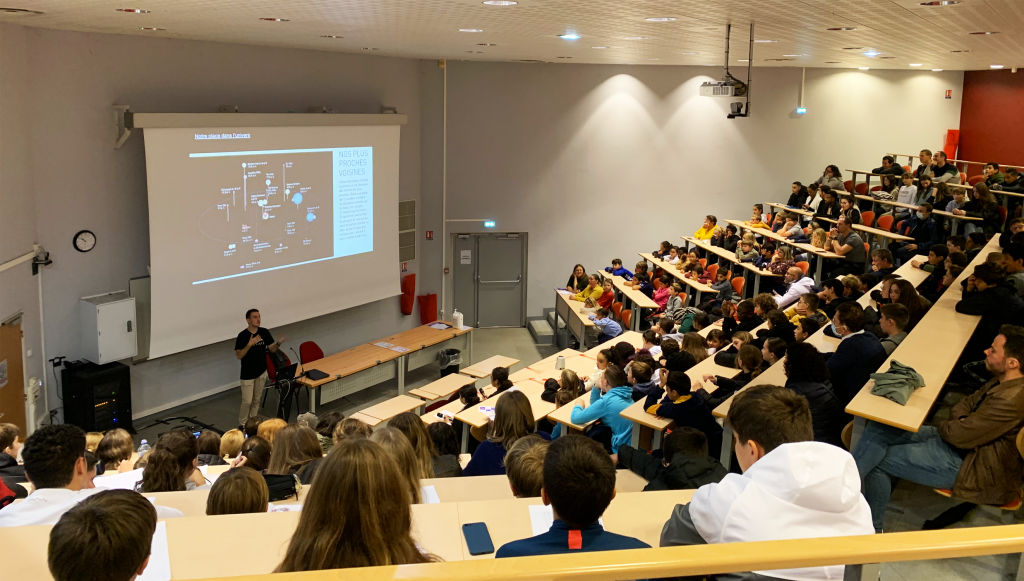
Celebrating Science at URN
The development of artificial intelligence, the dialogue between the brain and the gut, the relationship of music / drawing, the creation of algorithms, the laws of physics in our daily lives, the place of the Earth in the universe, climate change … the birth of workshops during the 31st edition of the Science Festival. Various Rouen Normandy University laboratories, as well as associations and partners, have highlighted their research through platforms intended for the general public.
“I work in social robotics. I do human/agent interaction. Agents are robots or virtual personalities. What is interesting with these social robots is exactly this social component which is communication with people,” explains Rasendrasoa Sandratra, PhD student in the LITIS lab in front of a podium In the village of Madrillet, “we want them to be integrated into people’s daily lives, for example with the elderly or with children with autism.” Behind him, two robots interact with university students. He continues: “The Fête de la science is interesting because it forces us to change our vocabulary. Promotion is another exercise, and we necessarily need it at one time or another. Children sometimes ask slightly silly questions. But these questions are often too interesting to ask ourselves.”
At the end of his What is the Universe conference, Benjamin Claes, a postdoctoral fellow in the GPM lab made a somewhat similar observation. “I have always loved spreading science. Astronomy and science are passions and I am glad to be able to share them with young people and try to spark their interest a little bit in science. I was surprised by the number of attendees and the number of questions asked.” For thirty minutes, he introduced various concepts of astronomy before answering questions from excited college students. Where does the concept of the multiverse come from? One asks. “What is the gas that fills the universe? ask another. “Is it possible that we will find a new planet in our solar system?” asks a third. “What is the size of the largest star we know?” asks a schoolboy again. Nicholas Eplantour, Professor of Mathematics at Chartier College in Darnetal, is pleased. He brought his students to the campus in Madrilette and they weren’t stingy in asking questions. At the French level, science is holding back a bit. Pupils are relatively uninterested in science and are motivated by it because it sometimes has a rather negative image. We want to show them that there are things that are accessible and exciting and that the number of questions asked today proves that they work.”

“Organizer. Social media geek. General communicator. Bacon scholar. Proud pop culture trailblazer.”

